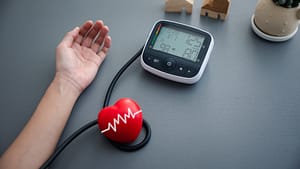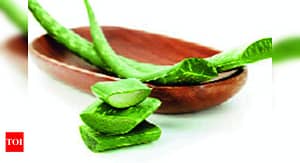
How to Induce a Period: Natural Remedies, Methods, Risks – Healthline
If you aren’t using hormonal contraception, you may be able to induce your menstrual period naturally. Modifying your exercise routine, taking steps to relieve stress, some fruits and vegetables, and even orgasm may help kickstart menstruation.
Whether you want to get it out of the way before a special occasion or are experiencing an unexpected delay, there are things you can do to help start your period sooner rather than later.
But there are a few caveats:
It’s also important to note that the research around natural remedies for inducing menstruation is limited. None of these methods are guaranteed to work.
Long-term hormonal birth control use is the only surefire way to regulate your menstrual cycle.
Some methods allow you to skip your period entirely or significantly reduce your symptoms, while others help create a set timeline for menstruation.
Anecdotal reports suggest that light stretching or yoga may help loosen up your abdominal muscles and encourage your period to start.
If you haven’t already, developing a regular movement practice may help regulate your reproductive hormones and lead to more long-term predictability in your menstrual cycle.
You know your body best, so what this looks like for you may be different than what it looks like for someone else.
According to the
People who play sports,
If this sounds familiar, you might consider reaching out to a sports medicine doctor to discuss your current training regimen and the potential impact on your overall hormone levels.
A 2018
This may be due to cortisol, a steroid hormone that’s released in response to stress. An uptick in stress hormones may interfere with your body’s ability to regulate your menstrual cycle.
It almost goes without saying that concerns about a delayed or potentially missed period can add to your stress. Managing stress — especially when it relates to factors outside of your control – is also easier said than done.
It’s important to acknowledge and honor this while still finding ways, however small, to take time for yourself. This might look like like:
Anecdotal reports suggest that applying heat may help relax tense abdominal muscles and increase blood flow to the area. This could accelerate your menstrual cycle, but research is needed to support this.
The same may also be said for sexual activity, which can cause your uterine muscles to contract and release with climax. This might spur the start of menstruation if you’re at that point in your overall cycle.
Just be sure to use a condom if you want to prevent pregnancy during penis-in-vagina sex.
Although it’s safe for people who may be pregnant to eat pineapple, ginger, turmeric, and foods rich in vitamin C, healthcare professionals advise against eating unripe or semi-ripe papaya.
If you’re worried that you may be pregnant and don’t want to be, eating unripe or semi-ripe papaya is unlikely to result in successful termination. Learn more about the harms associated with “home remedies” for abortion.
Fresh pineapple is a rich source of bromelain, an enzyme believed to affect estrogen and other hormones. Bromelain may also reduce inflammation.
For most folks, there’s little harm in eating more pineapple. Bromelain breaks down during the canning process, so stick to fresh pineapple.
Ginger is said to induce menstruation by causing uterine contractions. Although there isn’t enough research to support these claims, its anti-inflammatory properties are
Ginger has also been studied for its use in treating
Most people can safely tolerate ginger, so feel free to give this method a try. If you decide to use a supplement, be sure to select a high-quality product and follow the recommended dosage.
Turmeric is said to
Turmeric contains curcumin, a compound known for its anti-inflammatory effects. Curcumin
Most people can safely tolerate turmeric and curcumin. If you decide to use a turmeric or curcumin supplement, be sure to select a high-quality product and follow the recommended dosage.
Some alternative medicine practitioners suggest that eating unripe papaya may induce “proper menstrual flow.”
A
If you want to give papaya a shot, consider taking a pregnancy test first. Negative result? Eat up! Inconclusive or positive result? Hold off until you can consult with a healthcare professional about your options.
Vitamin C is believed to have a similar effect, however there’s no scientific evidence to support this.
A
All that said, there are many benefits to increased vitamin C consumption. The sky’s the limit when it comes to foods rich in vitamin C.
When it comes to supplements, it’s possible to have too much of a good thing. Take care to select a high-quality supplement and follow the recommended dosage.
Many healthcare professionals advise against using black cohosh, dong quai, or parsley supplements if there’s a chance you may be pregnant or are currently nursing a newborn.
If you haven’t already taken a pregnancy test, you might consider doing so. You may also find it helpful to consult with a healthcare professional.
The Food and Drug Administration doesn’t monitor herbal supplements in the same way that they monitor and regulate over-the-counter medications and prescription drugs.
Herbal supplements aren’t tested for safety, and the quality or purity of the product is never guaranteed. Look for supplements that have been verified by a third party testing organization and awarded a Certificate of Analysis.
Black cohosh is best known for
Black cohosh is generally well-tolerated in small doses. People who use statin medications or have a history of liver disorders should
Dong quai, also known as “female ginseng,” is another herb that’s believed to
Dong quai is generally well-tolerated in small doses. People who use warfarin and antiplatelet medications should
Parsley contains two compounds — myristicin and apiole — that
Parsley is generally well-tolerated in small doses. People who use wafarin or pentobarbital or have a history of low blood sugar, high blood pressure, or kidney disease should exercise caution.
It’s natural to experience a missed or late period from time to time. Infrequent delays and other irregularities generally aren’t cause for concern.
But in some cases, a missed or delayed period could be the result of an underlying health condition. Consult with with a healthcare professional if you:
If you’re over the age of 45 and suddenly stop having a period, it may be a sign a menopause. A healthcare professional can help make a diagnosis and discuss your options for symptom relief.
Tess Catlett is a sex and relationships editor at Healthline, covering all things sticky, scary, and sweet. Find her unpacking her inherited trauma and crying over Harry Styles on Twitter.
Last medically reviewed on August 1, 2023
Our experts continually monitor the health and wellness space, and we update our articles when new information becomes available.
Current Version
Aug 1, 2023
Written By
Tess Catlett
Edited By
Tess Catlett
Medically Reviewed By
Carla Prophete, MPAS, PA-C
Copy Edited By
Copy Editors
Apr 27, 2022
Written By
Becky Young, Heather Hobbs
Edited By
Heather Hobbs
Medically Reviewed By
Stacy A. Henigsman, DO
Copy Edited By
Megan McMorris
VIEW ALL HISTORY
Share this article
OUR BRANDS

